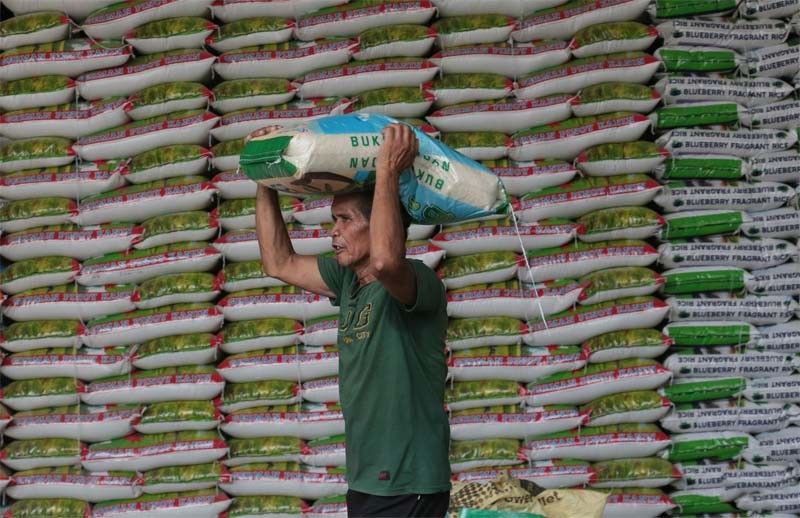Petition to reduce tariff on imported rice filed

MANILA, Philippines — The Foundation for Economic Freedom (FEF) has in a petition asked the Tariff Commission (TC) to start the investigation for temporary tariff reduction on rice imports to address the increasing price of the staple.
In a petition filed Sept. 7, the group asked TC chairperson Marilou Mendoza to order the commission to look into the possibility of reducing the tariff on imported rice by 25 percent.
“The immediate reduction of import tariffs on rice from 35 percent to 10 percent will be effective in solving the demand-supply gap and arrest the increasing food price inflation, for the welfare of the general consuming public,” said FEF president Calixto Chikiamco and board of trustee member Kristine Alcantara in their petition.
Soaring retail prices of rice have prompted President Marcos to issue Executive Order 39, which imposed a price ceiling of P41 per kilo for regular milled rice and P45 per kilo for the well-milled variety. The price caps took effect last Sept. 5.
However, FEF believes that reducing tariffs is the way to go to provide relief to the domestic rice market, noting that the increase in the price of imported rice has been the main cost push for current local pricing for the staple.
“The greater the reduction – down to zero or close to it – the greater the relief. A cut down to a 10 percent rate will have a significant impact,” it said. “The high cost of imported rice with the tariff is causing traders to scramble for scarce palay stocks, leading to high prices cascading down the value chain.”
FEF said retailers who are adhering to the price ceiling are incurring losses and, because of this, a number of them would rather keep their stocks than sell at a loss.
“The protectionist 35 percent rice import tariff is the most significant driver of the cost of imported rice. A back-of-the-envelope calculation suggests that duty-free importation of rice, even at $600 per ton, should bring the landed cost of imported rice at parity with wholesale well-milled rice (WMR) of P39 per kg, which is consistent with a retail price of P45 per kg – the current WMR price ceiling,” the group pointed out.
On the concern that importers will simply pocket the cost savings from tariff reduction, the FEF said this is allayed by the recent experience from tariffication.
It also said the tariff reduction on rice imports will prevent distortions from the price ceilings.
“These are well known from domestic and international experience, namely: the high cost of enforcement, i.e. monitoring over 50,000 retailers across the country; preventing adulteration or reclassification of rice to higher grades; ensuring adequate supply and preventing shortages,” FEF said.
Once the demand and supply stabilizes, it added, the tariff could be brought back to its previous level.
FEF is composed of economists, former and present Cabinet secretaries and undersecretaries as well as leading figures in the academe, finance and business communities. It is dedicated to advancing economic and political liberty, good governance, secure and well-defined property rights, market-oriented reforms and consumer welfare.
It earlier urged the government to lift or bring down tariffs on rice imports instead of imposing price caps, which would harm consumers, farmers and the entire economy.
Last week, National Economic and Development Authority Secretary Arsenio Balisacan also called for a review of the existing tariff levels on rice to help bring down the price of the staple and consider its impact on local producers.
“To partially counterbalance the rise in global prices and alleviate the impact on consumers and households, we may implement a temporary and calibrated reduction in tariffs,” he said.
His call for review was made after inflation accelerated for the first time in seven months to 5.3 percent in August, largely due to increases in food prices, such as rice. Rice inflation, in particular, went up to 8.7 percent in August from 4.2 percent in July.
- Latest
- Trending


























